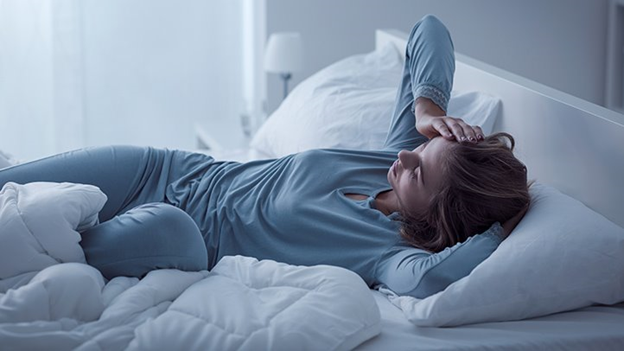
There isn’t one reason why your sleep gets hampered. Think of your busy schedule, long working hours, stress, responsibilities and unavoidable challenges. Irrespective of these factors, it’s possible to get into the habit of good sleep. Just like food and water, sleep is important for your mental and physical health.
What happens when you get better sleep at night?
- Feel refreshed and energetic the next day
- Boost muscles and repair the cells and tissues
- Allows brain to process information and form memories
- Lowers health problems and illness
- Improves emotional and social interactions
Sleep duration as recommended by experts?
Adults: 7-8 hours per day
Teens: 9-10 hours per day
School-aged children: 10 hours per day
Preschool-aged children: 11 hours per day
New-born babies: 16 hours per day
Boost sleep quality in simple ways:
1. Sleep schedule
Decide upon your sleeping schedule to get better and proper sleep. Condition your body and mind to follow the strict routine without any excuse. Just as you never compromise on important work, don’t compromise even on sleep. Getting enough sleep would make you feel rejuvenated and productive the next day. Adults need at least 7 hours of sleep, if you face challenges in getting asleep within 15-20 minutes, try some relaxing activity or listen to soothing music. Be it weekdays or weekends, try following the same schedule.
2. Create a healthy sleep environment
A calm, cool, dark and comfortable bedroom environment can prepare you for good night sleep. Ensure comfort in mattresses and pillows, keep a room well ventilated and avoid high volume noise from the outside environment. Taking a bath or relaxation techniques may aid in better sleep. Avoid stress on the mind especially during sleep time, as it might hamper your sleep. Prepare yourself well with a good internal ambience to get healthy sleep and wake up fresh.

3. Meditation and Exercise
One of the most recommended techniques preferred today is meditation. It not only helps calm your mind but also clear distracting thoughts during sleep. Your mind experiences a peaceful ambience for complete relaxation and rejuvenation. Another technique is exercise, which stimulates the body to secrete a stress hormone called cortisol. Try keeping a gap of 3-4 hours in exercise before you go to bed. One more thing to keep in mind is avoiding daytime snaps, especially for a longer duration as it may interfere with your night sleep.
4. Eating and Drinking habits
Never go to bed over-stuffed or even while you are hungry. You may feel discomfort getting proper sleep. Avoid caffeine, nicotine and alcoholic drinks specifically during the night as these stimulants can keep you awake. You might wonder that alcohol may help bring on sleep, but after a few hours, it acts as a stimulant thereby keeping you awake at night. Do not drink excess water before bedtime as it may awaken you for urinary purpose. What if you get hungry at night? Prefer snack over food that won’t be heavy, perhaps dairy or carbohydrate food may help.
5. Experiencing Trouble in Sleeping
In case you consistently experience sleep trouble even after taking all the necessary precautions, it’s time to see a doctor. You might show a sign of sleep disorders like insomnia, sleep apnea, parasomnias which could endanger your sleep quality and prevent you from reaching deep stage of sleep. After proper study and getting into the root cause, a doctor may prescribe you a sleep aid and diagnose this disorder.

Takeaway:
Good sleep hygiene is important for maintaining overall well-being. Follow a regular sleep schedule with key ideas highlighted and you would experience the change yourself. Reasons for sleep deprivation could be many, but getting healthy and better sleep can provide innumerable benefits you could think of. Sleep well, eat well and open your doors to healthy living.



